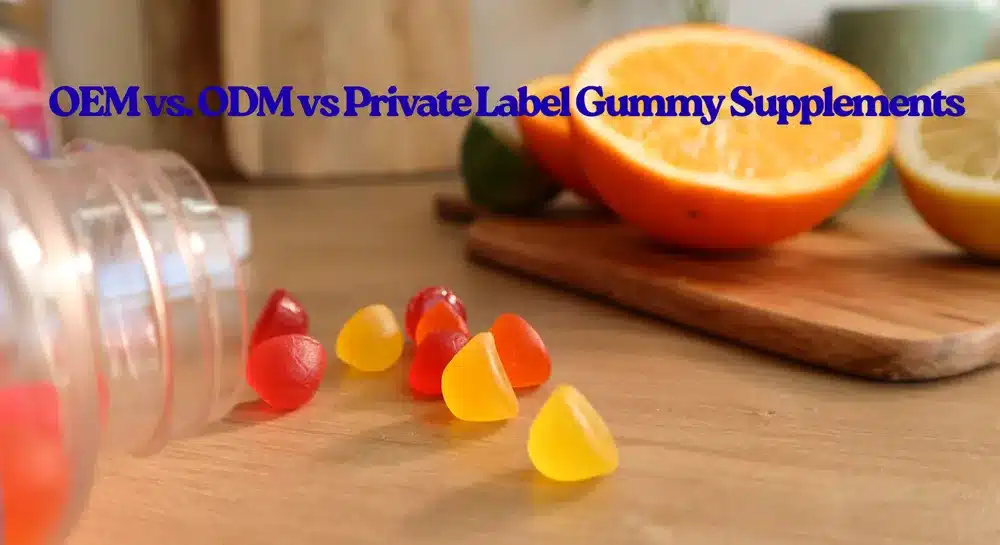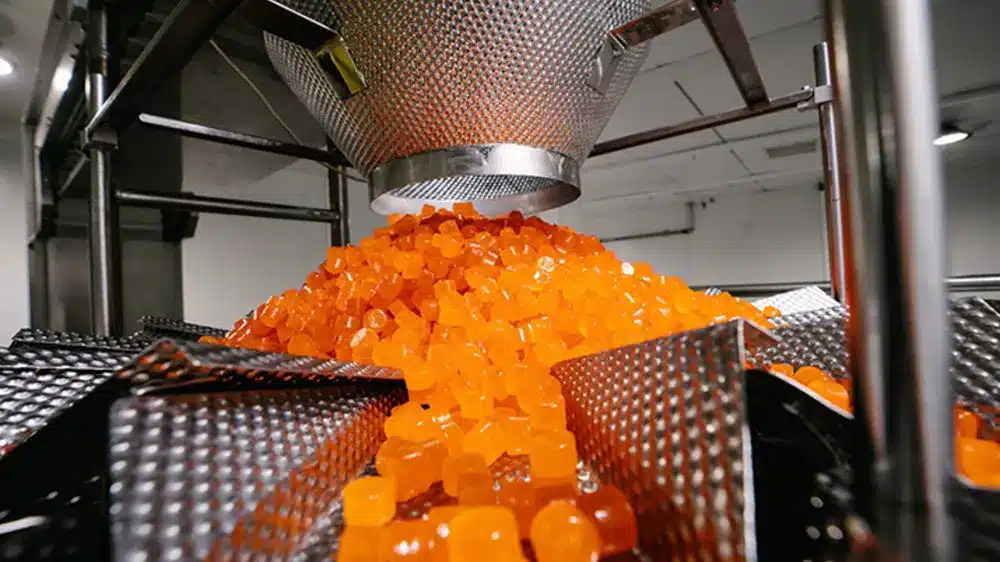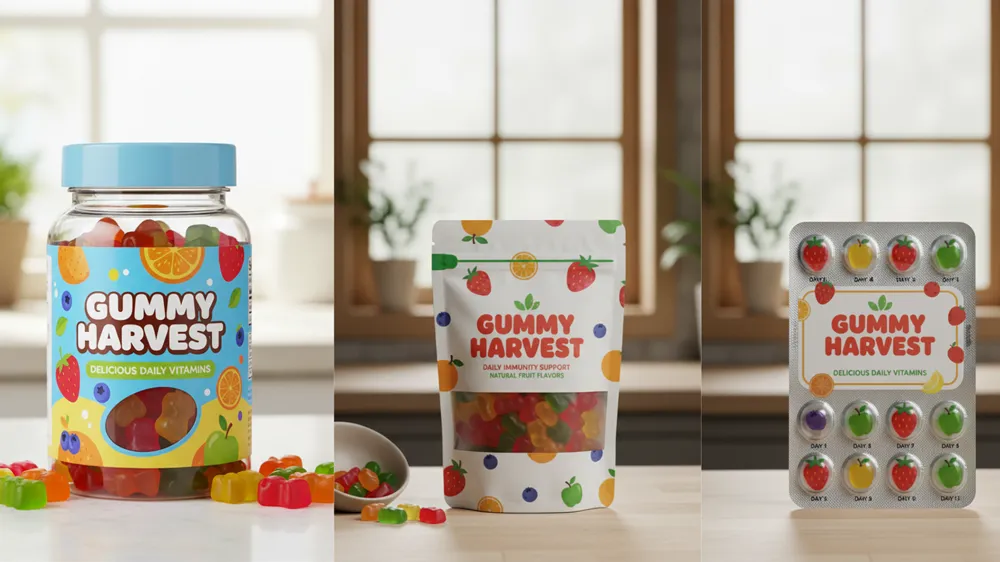
OEM vs. ODM vs Private Label Gummy Supplements: Which Manufacturing Model Fits Your Brand?
In the rapidly expanding gummy supplements market, projected to reach $24 billion globally by 2030, brands face a critical decision: how to bring innovative, consumer-friendly products like chewable multivitamins or targeted oem gummies to market efficiently. Whether you’re a startup eyeing vegan immunity boosters or an established retailer launching a private line, the choice between OEM, ODM, and Private Label manufacturing models can make or break your timeline, costs, and competitive edge. These approaches allow seamless scaling without building in-house facilities, leveraging expertise from specialized gummy supplement manufacturers. Building on our Comprehensive Guide to Gummy Supplements , which explores the basics of gummy types, benefits, and targeted needs like immunity or beauty formulas, this article compares the three models head-to-head. We’ll highlight why partnering with a leader like Gensei—a premier gummy supplement manufacturer in China—can optimize your strategy, and provide a decision framework to guide your next move.
Understanding the Core Models: OEM, ODM, and Private Label
To navigate gummy supplement manufacturing, it’s essential to grasp the nuances of each model, as they cater to different stages of product development and market entry.
OEM (Original Equipment Manufacturing) focuses on production replication: You supply the exact formula, and the manufacturer executes high-volume runs using their facilities. This is ideal for brands with proprietary recipes, such as a custom oem gummies blend of biotin and collagen for hair health. It minimizes R&D involvement on the manufacturer’s end, ensuring fidelity to your specs while adhering to GMP and FDA standards.
ODM (Original Design Manufacturing), on the other hand, shifts more responsibility to the manufacturer, who handles formulation, testing, and production based on your high-level brief. For instance, if you’re developing a probiotic-infused gummy for gut support, an ODM partner iterates on prototypes, incorporating trends like low-sugar or plant-based pectin. This model accelerates innovation but requires trust in the manufacturer’s expertise.
Private Label bridges the gap, offering ready-made or lightly customized products rebranded under your name—think private label gummy supplements stocked on pharmacy shelves. It’s a hybrid, often starting with OEM-like replication but adding branding elements like unique packaging or flavors. As detailed in our Comprehensive Guide to Gummy Supplements (Pillar Page) under the Basics and Types section, these models align with diverse gummy formulations, from kids’ multivitamins to adult energy boosters, ensuring scalability without compromising quality.
A standout gummy supplement manufacturer like Gensei in China exemplifies versatility across these models. With over 20 years of experience, Gensei operates state-of-the-art GMP-certified facilities, producing millions of units annually while specializing in sustainable, vegan-friendly oem gummies. Their integrated supply chain—from pectin sourcing to final labeling—reduces lead times by 25% compared to Western alternatives, making them a go-to for global brands entering Asia-Pacific markets.
Head-to-Head Comparison: Pros, Cons, and Use Cases
Choosing the right model hinges on your resources, goals, and risk tolerance. Below, we break down OEM, ODM, and Private Label with a focus on oem gummies production realities, including cost, timelines, and real-world applications in the gummy supplements market.
OEM shines for efficiency: Pros include rapid scaling (4-6 weeks turnaround), IP protection (your formula stays yours), and low per-unit costs ($0.08-0.15 for high volumes), making it perfect for established players replicating hits like vitamin D oem gummies. Cons? Limited creativity—no R&D tweaks—and dependency on your upfront specs, which could delay fixes for issues like texture inconsistencies.
ODM offers innovation firepower: With pros like full-service design (e.g., formulating a melatonin sleep gummy with time-release tech) and access to proprietary tech from manufacturers like Gensei, it’s suited for R&D-intensive launches. Expect 8-12 weeks and $0.15-0.25 per unit, but cons include higher initial fees and potential over-customization leading to MOQ bloat (minimum 10,000 units).
Private Label excels in speed-to-shelf: Pros encompass branded exclusivity with minimal effort (6-8 weeks, $0.10-0.20/unit) and low MOQs (as low as 5,000 via Gensei), ideal for retailers debuting private label gummy supplements like berry-flavored elderberry immune chews. Drawbacks: Less differentiation, as base formulas are shared, and branding costs can add 10-15%.
Use cases vary: Opt for OEM to expand a proven line (e.g., scaling oem gummies for e-commerce); ODM for novel products like adaptogen-infused stress-relief variants; and Private Label for quick retail pilots. Tie this to our Comprehensive Guide to Gummy Supplements Targeted Needs section, where we discuss how these models support specific formulas like joint health or mood boosters.
The comparison table below summarizes key metrics, based on 2025 industry benchmarks:
| Feature | Private Label | ODM (Original Design Manufacturer) | OEM (Original Equipment Manufacturer) |
| Product Design/Formula | Manufacturer’s existing formula. | Manufacturer’s existing formula, with minor modifications. | Your unique, custom formula/design. |
| Customization | Minimal—primarily limited to branding, labeling, and packaging. | Moderate—includes branding, packaging, and some tweaks to flavor, color, or minor ingredients. | Complete control over every aspect: formula, ingredients, dosage, flavor, texture, and packaging. |
| Time to Market | Fastest (e.g., 4-8 weeks) | Fast (since the design exists). | Longest (due to R&D, testing, and formulation). |
| Cost / Initial Investment | Lowest (Low MOQs). | Moderate. | Highest (R&D, tooling, higher MOQs). |
| Intellectual Property (IP) | Manufacturer owns the core formula/design. | Manufacturer owns the core formula/design. | You (the brand owner) own the formula/design IP. |
| Best For | Startups, testing a new market, fast trend capitalization, low budget. | Brands wanting speed with a touch of uniqueness, building on a proven base. | Established brands, creating a signature product, seeking a premium or proprietary advantage. |
Gensei, as a top gummy supplement manufacturer in China, customizes these models with 30% cost savings through localized sourcing, enabling seamless transitions—e.g., from ODM prototyping to OEM scaling.
Why Choose a Leading Gummy Supplement Manufacturer Like Gensei in China?
In a crowded field, partnering with a proven gummy supplement manufacturer like Gensei elevates your project from viable to visionary. Headquartered in China, Gensei leads with cutting-edge facilities spanning 50,000 sqm, producing 100 million+ units yearly while holding dual FDA and EU GMP certifications. Their edge? Integrated vertical supply chains for raw materials like pectin and vitamins, slashing costs by 20-30% and lead times versus U.S./EU peers.
For oem gummies, Gensei’s precision molding tech ensures ±2% weight accuracy, perfect for consistent dosing in multivitamin lines. ODM clients benefit from their 50+ formulation scientists, who specialize in trends like low-sugar private label gummy supplements with natural sweeteners. A real-world example: Gensei collaborated with a European retailer to launch a private label beauty gummy series—biotin-collagen chews—hitting shelves in 10 weeks at 25% below market rates, boosting sales 40% in year one.
Sustainability is another hallmark: Gensei’s eco-pectin sourcing reduces carbon footprints by 15%, aligning with 2025 clean-label demands. As noted in our Comprehensive Guide to Gummy Supplements (Pillar Page) Selection and Practical Guides, manufacturers like Gensei ensure compliance and quality, minimizing risks for your brand.
Choosing the Right Model for Your Business: Decision Framework
Deciding between OEM, ODM, and Private Label boils down to aligning with your strategy. Start with a self-assessment: What’s your budget (under $50K favors Private Label)? Timeline (under 8 weeks suits OEM)? Innovation level (high R&D points to ODM)? For a mid-sized brand, hybrid paths work—prototype via ODM, then scale with oem gummies.
Use this checklist:
- IP Readiness: Have a formula? Go OEM.
- Market Speed: Need quick wins? Private Label private label gummy supplements.
- Differentiation: Unique actives? ODM.
- Scale Potential: High volume? Leverage Gensei’s China-based efficiency.
Consult a gummy supplement manufacturer like Gensei early for audits—they offer free MOQ calculators. This framework complements the efficacy insights in our Comprehensive Guide to Gummy Supplements (Pillar Page).
Conclusion and Next Steps
Navigating OEM vs. ODM vs. Private Label in gummy supplement manufacturing empowers brands to thrive in a market hungry for convenient, effective products. OEM delivers reliability for replication, ODM fuels creativity for breakthroughs, and Private Label accelerates branded accessibility—each amplified by partners like Gensei, China’s foremost gummy supplement manufacturer for oem gummies and beyond.
Ready to launch your line? Download our free OEM/ODM Decision Checklist or contact Gensei for a personalized quote on private label gummy supplements. For foundational gummy knowledge, revisit our Comprehensive Guide to Gummy Supplements. Your wellness empire starts here—let’s chew on success!



